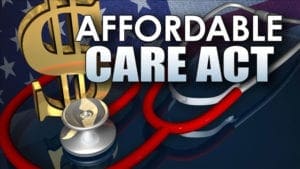State of The Union Address: What this Administration Got Wrong About Obamacare
This article was featured in our weekly newsletter, the Liberator Online. To receive it in your inbox, sign up here.
During President Barack Obama’s final State of the Union address, this administration’s signature healthcare law was seldom brought up. As a matter of fact, little time was dedicated to healthcare overall. But the few references to the Affordable Care Act (ACA) have been mostly ignored, suggesting that little to no attention is dedicated to healthcare law as the media focuses on the 2016 presidential election.
But to Brian Blase, Senior Research Fellow with the Spending and Budget Initiative at the Mercatus Center at George Mason University, the administration’s claims deserve a second look.
In an article for Forbes, Blase looks at how the current programs are performing. With the hopes of helping Americans have a better understanding of ACA and its consequences, the scholar analyses the administration’s claims and reports on his findings.

According to the current administration, ACA was designed to fill “the gaps in employer-based care so that when you lose a job, or you go back to school, or you strike out and launch that new business, you’ll still have coverage.” To Blase, however, things aren’t that simple.
If the administration had made the portability of coverage a main priority, the law would not have to be as complex as it is.
Blase also argues that portability as a main goal would have prompted a piece of legislation that would have attracted considerable bipartisan support. Why? Because most healthcare experts on the right and center have always advocated for increased portability, urging lawmakers to severe the ties between insurance and employment.
To Blase, the primary purpose of ACA couldn’t be to keep Americans covered through the several changes they experience if the law standardizes health insurance and ups the requirements concerning coverage levels. By implementing a complicated tax and subsidy system to support ACA, the Obama administration forced consumers to fall prey to distorting price controls that make insurance coverage actually less affordable.
If the administration’s main goal with ACA was to keep people covered no matter what, the law wouldn’t also have been written in a way that increases gross premiums so radically, making low-income earners less likely to get good coverage.
While Blase spent a good deal of time focusing on this particular claim, another subject also caught his eye.
During the address, president Obama claimed that ACA has helped businesses to create jobs, not eliminate them. To Blase, this particular claim is troubling mostly because it’s not necessarily wrong. It’s misleading instead.
Claiming jobs were created because of the enaction of ACA is not a fact, since job growth naturally increased after the deep economic recession the country had just been recovering from when ACA became the law of the land. During the recession, millions of people were kicked out of their jobs, but as confidence grew, more jobs were inevitably created. That’s just a natural consequence of the labor market dynamics and is not at all connected to the enactment of ACA.
If the current administration is, indeed, concerned with how its healthcare programs are performing, Blase suggests, its review of ACA would lead to its repeal. Why? Because ACA is actually a negative pull on the economy.
According to the Congressional Budget Office, ACA will actually shrink the labor market in America. If the congressional projection is correct, two million full-time jobs will be lost due to ACA alone.

























